Research Grant recipients
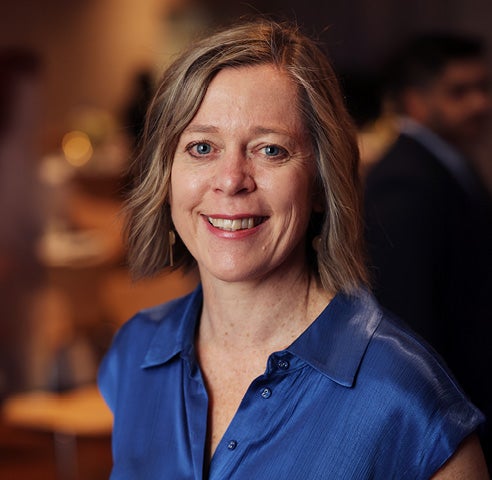
Lead Researcher, Dr Kristen Kappell
Identifying Strategies to Sustain the Medical Voluntary Assisted Dying Workforce in Victoria
Pioneering support for doctors involved in voluntary assisted dying
Victoria made history in 2019 by becoming the first Australian state to introduce voluntary assisted dying (VAD) legislation. As a groundbreaking initiative, the service was designed to be integrated into usual healthcare delivery. Yet, the reality is that VAD remains a unique and demanding area of practice, relying on doctors who willingly undergo special training and provide assessments beyond their typical clinical work.
Susan Jury, Director of the Statewide VAD Navigator Service, and clinical psychologist Kristen Kappel, the chief investigator for an important new research project, emphasise that while VAD is a vital service, involvement for healthcare professionals can be taxing, often bureaucratic, time-consuming, and emotionally demanding. “Our role as navigators is to support and sustain the medical workforce involved in VAD,” Susan explains. “Since the outset, we’ve recognised this as a significant challenge to maintaining service delivery.”
Their current study is the first of its kind in Australia, aiming to provide evidence that will not only strengthen Victoria’s VAD workforce but also guide national efforts. “We are confident that the findings will inform research across the country and help build practical support for doctors,” says Susan. The research team hopes their work will encourage more doctors to engage with VAD assessments and care, ultimately improving access for patients. “Depending on the results, we plan to share our findings widely, helping other jurisdictions learn from our experience,” Kristen adds.
Both Susan and Kristen bring deep personal and professional experience to their research, shaped by firsthand involvement in VAD service delivery. They have witnessed the impact on both healthcare providers and patients, especially when there are shortages of trained doctors. “Many doctors are supportive of VAD but don’t complete the required training or provide assessments, even for their own patients,” Kristen notes. “Understanding why this happens is a key question beyond our current study.”
Their motivation is further fuelled by mentors and colleagues within the VAD research community, including prominent figures such as Ben White, Linda Willmott and Casey Haining from QUT. Susan highlights the inspiration drawn from peers like Dr Maria Ftanou, Director of Psychosocial Oncology at Peter MacCallum Cancer Centre, and Kate Thompson, Program Director of the Victorian Adolescent & Young Adult Cancer Service, also based at Peter MacCallum Cancer Centre, whose expertise and dedication fuel the advancement of this field.
Like many researchers balancing clinical work and study, Kristen has faced challenges managing administrative tasks alongside a demanding clinical role. “The application process and research protocols require considerable time and effort,” she acknowledges. Yet, receiving the Avant Foundation Research Grant was a significant boost. “It was a moment of excitement and relief, recognition that made all the hard work worthwhile.”
The grant funds will be used to employ a research assistant and cover related project costs, enabling the team to focus on delivering meaningful results.
Looking ahead, Susan and Kristen see their research as just the beginning of Australia’s VAD journey. “We intend to remain involved in this evolving field, using research as a foundation for ongoing improvement,” says Susan. “Our ultimate goal is to ensure the VAD system continues to evolve and meet the needs of patients and doctors alike. Both underscore the significance of a collaborative research environment, recognising that peer support and shared expertise are as crucial as financial resources.
“We’re experts in VAD, but we rely on colleagues with strong research skills to help us translate our knowledge into evidence-based change,” Kristen explains.
Susan and Kristen’s work is closely aligned with broader health system priorities. Recent reviews by the Department of Health have identified the sustainability of the medical workforce as a critical factor in the successful implementation of VAD. By addressing the practical and emotional challenges faced by doctors involved in VAD, their research aims to strengthen this essential workforce and enhance the quality of care for individuals seeking end-of-life support.
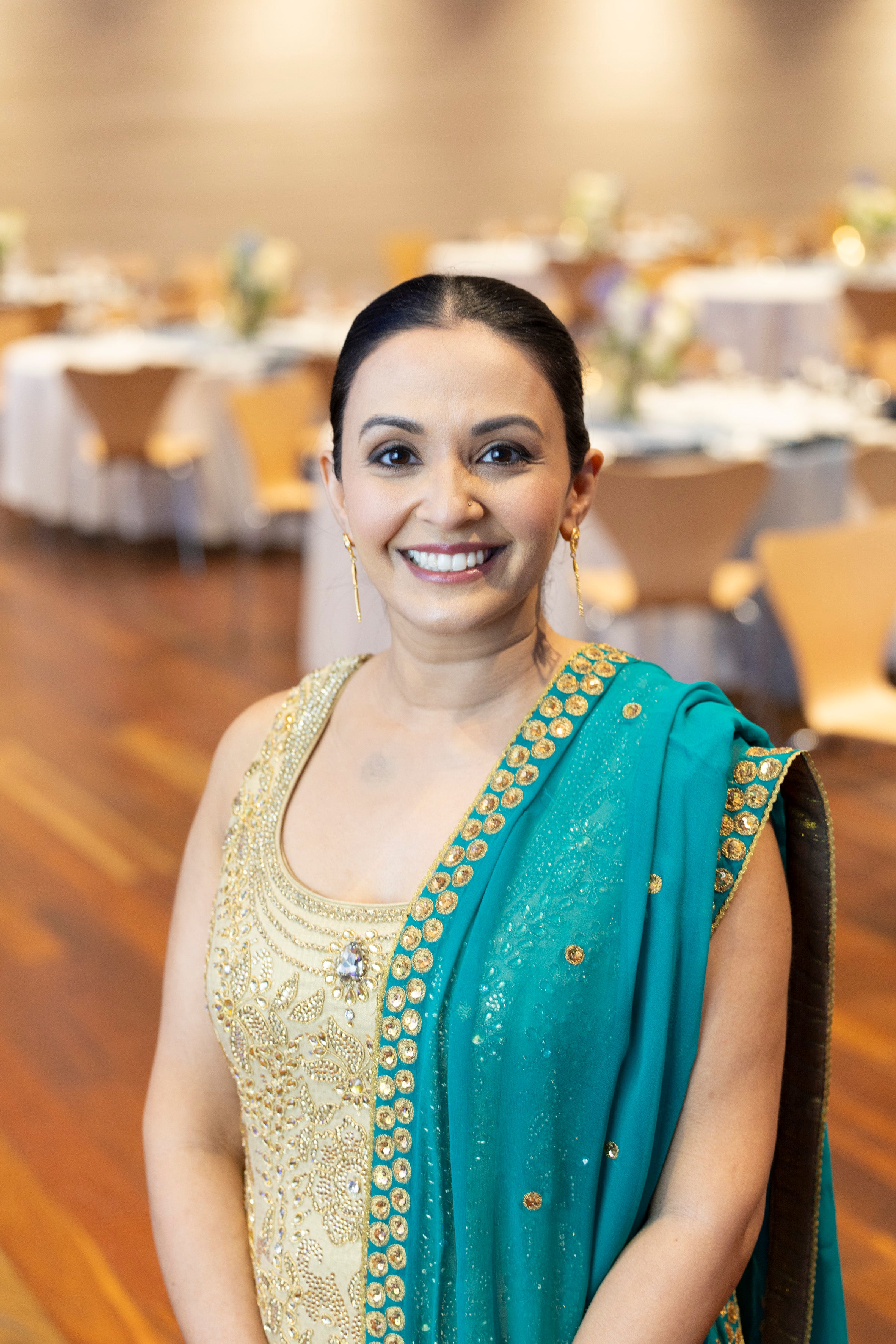
Lead Researcher, Dr Rajni Lal
ALL BRAN: Empowering Informed Patient Decisions Before Surgery
ALL BRAN: Empowering Informed Patient Decisions Before Surgery
At Blacktown Hospital in Sydney, Australia, Shared Decision-Making (SDM) clinics have been set up to help patients make informed decisions about their surgery. These clinics use a patient-focused approach, where patients are empowered to make choices that reflect their personal values and preferences. The clinics use a special framework called ALL BRAN (Ask, Listen, and Learn before exploring Benefits, Risks, Alternatives, and Natural progression of disease) to guide these conversations.
To make sure that everyone, including people from diverse cultural backgrounds, has equal access to this care, the project seeks funding to translate SDM resources into the 10 most commonly spoken languages in the area. This will help overcome language barriers and improve health literacy, ensuring that all patients can fully understand their options and make informed choices.
The project aligns with national standards for patient-centred care and is focused on promoting health equity, ensuring that all patients, regardless of their language or background, can receive high-quality care and participate in decisions about their treatment.
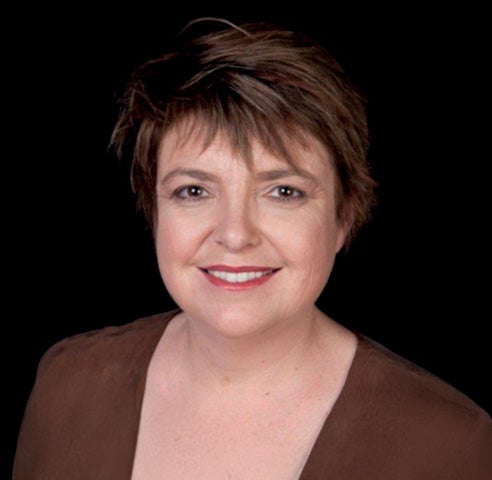
Lead Researcher, Dr Louise Stone
“I love my job, but it’s time to go”. A narrative study of wellbeing triggers for early retirement in female GPs
Addressing the challenges facing female GPs through research
When we think about general practice, challenges like long hours, administrative burdens and burnout often come to mind. Dr Louise Stone, a dedicated researcher, is addressing these issues head-on, combining her professional experiences with a clear objective to uncover what’s really driving young GPs, especially women, away from the medical profession. Dr Stone has spent years writing about primary care policy and engaging directly with young GPs. She has identified critical insight: often it’s not the clinical work that pushes doctors out, but the increasing layers of regulation, administration and monitoring. Dr Stone’s research aims to expose the unintended consequences of policy changes and provide a refined understanding of workforce attrition, particularly among female GPs.
This research captures the voices of over 1,200 participants to highlight the widening gender pay gap and the risk of gaps in healthcare provision, especially in women’s and mental health services. By amplifying female GPs’ experiences, Dr Stone’s research seeks to inform policies that accurately portray their lived experience.
While academic publications remain important, policy change requires conversations beyond journal pages. Dr Stone is committed to engaging with stakeholders across the health system to ensure these findings influence decision-making and help reduce the premature exit of female GPs from the workforce.
As a female GP, she brings lived experience of systemic challenges, from being underestimated by her peers, to navigating unnecessary bureaucratic hurdles. This personal insight drives her passion for supporting marginalised voices within the profession and advancing equality.
A strong network of mentors and colleagues has shaped Dr Stone’s work, and she now dedicates herself to nurturing emerging researchers, particularly those facing intersectional disadvantages, to foster a more inclusive research environment.
Receiving an Avant Foundation Research Grant has been a powerful validation for Dr Stone, especially after years of tackling difficult topics such as sexual harassment in medicine. The funding enables her to focus fully on this project, balance her clinical responsibilities and continue supporting patients often underserved by the healthcare system.
Looking forward, she advocates for greater peer learning opportunities, improved research infrastructure for general practice and renewed attention to professionalism. Despite political trends favouring alternative primary care models, Dr Stone believes independent research is crucial to demonstrating the true value of GPs and ensuring sustainable, quality care.
Ultimately, Dr Stone’s goal extends beyond research output. It is about building a supportive community, elevating underrepresented voices and shaping a future where female GPs can thrive, for the benefit of the profession and the patients they serve.
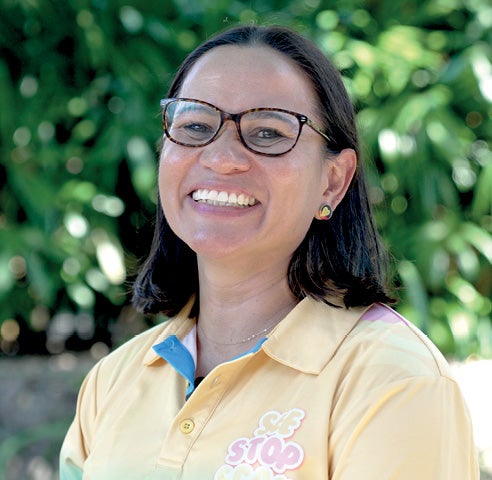
Lead Researcher, Dr Kiarna Brown
The Dungudbila App: A digital education Application supporting pregnancy, postnatal and sustained well-being of Top End First Nations women
Empowering First Nations mothers with the Dungudbila app: a culturally safe pregnancy education tool
In the world of maternal health research, some leaders do more than innovate, they transform. Dr Kiarna Brown, a First Nations obstetrician deeply connected to her community, is driving a groundbreaking project set to revolutionise pregnancy care for First Nations women across Australia.
“My interest is both personal and professional,” Dr Brown shares. Growing up in her community and now working as an obstetrician, she has supported First Nations women through pregnancy journeys in diverse settings, from urban hospitals to remote communities.
A pivotal moment came during a yarning session when a woman spoke about feeling disconnected from standard antenatal care. “Her story was a turning point,” Dr Brown recalls. “It became clear that existing models weren’t designed with Indigenous women’s needs at their core.” This motivated her to advocate for and create maternity care models that thoughtfully incorporate Indigenous knowledge and cultural practices. Central to Dr Brown’s research is the Dungudbila app, a culturally informed, co-designed digital pregnancy education tool. “This isn’t just about providing information; it’s about empowering women by combining clinical evidence with Indigenous ways of understanding,” she explains.
The project aims to improve quality and safety by delivering education that is evidence-based and culturally respectful. It also supports sustainability through community ownership and exemplifies professionalism by fostering ethical, respectful partnerships with First Nations communities. After the pilot, Dr Brown plans to refine the app with community input and expand it to other regions, championing digital health solutions that are community-driven and culturally appropriate. She’s mindful of the challenges ahead, including limited digital access in remote communities, sustaining long-term engagement and ensuring the app continues to reflect and respect cultural values as it evolves. “We have to be careful not to reproduce existing inequities,” she says. “Our goal is to empower Indigenous women fully and respectfully.”
Setbacks are part of the journey. “I see challenges as opportunities to reflect and adjust,” Dr Brown says. “Regularly reconnecting with the community helps keep our work aligned with their needs and motivates me to keep pushing forward.”
Receiving an Avant Research Grant was a proud and humbling moment. “It validates the importance of community-led, culturally safe research,” she says. “The funding has been vital for supporting co-design workshops, compensating participants and creating culturally appropriate content.”
Dr Brown emphasises the importance of structured mentorship and strong peer networks for emerging researchers, particularly those working in Indigenous health, where support and guidance are essential for meaningful and culturally respectful research. “Navigating ethics, translating knowledge and engaging with policy can be overwhelming without guidance. Collaboration is key.” She partners closely with Aboriginal community-controlled organisations, maternal health experts and skilled digital designers, to ensure the project remains meaningful and effective.
Looking to the future, Dr Brown envisions a time when First Nations-led digital health tools are a cornerstone of maternal care nationwide. “In the next five to ten years, I hope to see a network of culturally safe resources empowering women across Australia.”
Her broader goal is transformative: “I want to help reshape maternal health systems to be fair, inclusive and truly respectful of culture. This research is my way of contributing to a legacy that centres First Nations women’s voices and autonomy.”
While funding is critical, she emphasises the importance of holistic support for researchers: “Mentorship, community, protected research time and institutional support are all essential. Equally important is emotional support, especially when working in areas involving trauma and social justice.”
Dr Brown’s work goes beyond just research, it’s a powerful call for justice, cultural respect and empowerment for First Nations mothers. Under her leadership, the future of maternal health is being reimagined: one that is inclusive, grounded in community and filled with resilience and hope.
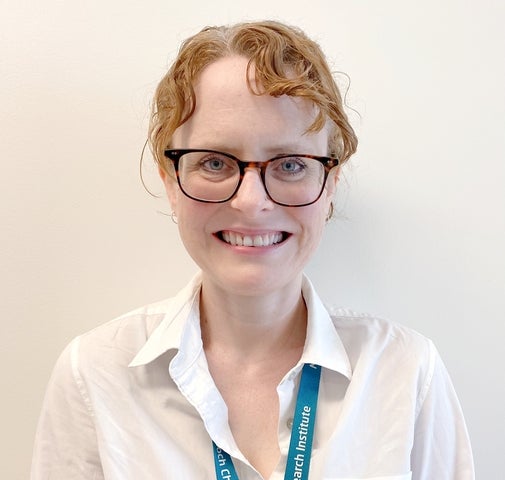
Lead Researcher, Dr Kim Davis
Thermal imaging to detect pharyngitis in a Streptococcus pyogenes controlled human infection model
Thermal imaging to detect pharyngitis in a Streptococcus pyogenes controlled human infection model
Streptococcus pyogenes (Strep A) is a major cause of illness and death worldwide. One of the most common diseases caused by Strep A is strep throat, which affects around 290 million people each year. Strep A can also lead to serious complications like rheumatic heart disease, which impacts over 40 million people and causes more than 300,000 deaths annually. Despite the widespread impact, controlling Strep A infections has been challenging, and a vaccine is urgently needed.
To help develop a vaccine, researchers have created a controlled human infection model (CHIM) of strep throat, which has provided valuable insights into how Strep A behaves and how the human immune system responds to the infection. A new version of this model using a different strain of Strep A is being developed to expand the understanding of the infection and support vaccine development.
However, diagnosing strep throat remains difficult, both in healthcare settings and research studies. Current methods often rely on clinical judgement or diagnostic tools that can be inaccurate. Recent studies suggest that thermal imaging—using heat-sensitive cameras—could improve the accuracy of diagnosing strep throat without the need for clinical interpretation.
This project aims to test the idea that using a thermal imaging camera, compatible with smartphones, can improve the accuracy of diagnosing strep throat. The goal is to incorporate this technology into the new CHIM to help researchers more accurately study and diagnose Strep A infections.
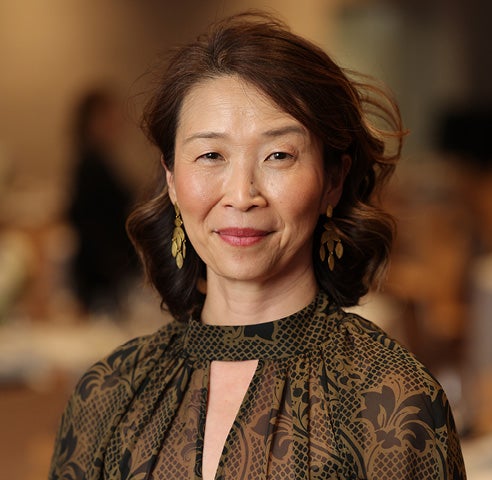
Lead Researcher, Professor Wei Chua
Cancer-TRUST – Treatment Resource Utilising Smart Translation for patients undergoing cancer therapy
Breaking barriers - AI and the human side of cancer care
When we talk about cancer care, the conversation often centres on cutting-edge treatments, clinical breakthroughs and survival rates. However, behind the scenes, a critical issue often goes unnoticed: how well patients understand the complex information they are given.
For one Avant Foundation Research Grant recipient, the Ingham Institute for Applied Medical Research, this question is at the heart of their study, especially when it comes to patients from culturally and linguistically diverse backgrounds. Their work is shedding light on the critical role communication and cultural sensitivity play in ensuring inclusive and effective cancer care for patients of all backgrounds.
Working in a healthcare environment serving a large multicultural population, the Institute has seen how overwhelming and confusing cancer information can be. Many patients and their families struggle to fully grasp treatment options, side effects, and warning signs, particularly when English is not their first language. It’s a challenge that prompts a deeply personal motivation to improve communication in cancer care for Lead Researcher, Professor Wei Chua: “I often think about my family members and friends who may not be proficient in English. Would they truly understand the information I provide? How can we do better for them?”
To address this gap, Professor Chua and team are developing an innovative solution: a multilingual chatbot powered by artificial intelligence. Designed to be user-friendly and accessible, this digital assistant will offer cancer patients information in multiple languages and help them recognise early signs of complications during treatment. The hope is that by making reliable, trustworthy information easier to access and understand, patients can feel more confident in managing their care and seeking help promptly when needed.
This innovative project has gained crucial momentum thanks to the support of an Avant Foundation Research Grant, which has empowered the team to develop and pilot a chatbot across four languages.
This early phase has already yielded promising results. Initial testing with both patients and AI developers has sparked a wave of enthusiasm, highlighting the tool’s potential to bridge communication gaps in cancer care. With eyes set on broader implementation, the team is preparing to introduce the tool to larger patient populations and clinical environments. Their long-term vision is to embed this technology as a standard, supportive feature in cancer care, making critical information more understandable and accessible for every patient.
But this research is about more than just technology. It’s a response to a growing complexity in cancer treatment and the information landscape. With a flood of sources, some reliable, many less so, patients can find themselves lost or misled.
Naturally, the path of research is rarely linear. It’s marked by unexpected turns, setbacks and moments of uncertainty. But for this research team, these challenges are not roadblocks, they’re stepping stones. Their motivation is rooted in the daily inspiration they draw from patients’ resilience and the quiet dedication of colleagues who work tirelessly behind the scenes.
Looking ahead, the researchers see vast potential in leveraging artificial intelligence not only in cancer care but throughout medicine. They acknowledge the scepticism and fears surrounding AI but believe it offers tremendous possibilities to improve patient outcomes, reduce administrative burdens and support clinicians. They are passionate about being part of this evolving landscape, acquiring the knowledge and skills needed to guide the safe and effective use of AI tools.
Beyond their immediate research goals, the team hopes to inspire future generations of clinicians and researchers to embrace curiosity and to view research as both rewarding and accessible. Recognising that funding is just one piece of the puzzle, they advocate for enhanced mentorship, research skill development and opportunities to build confidence in grant writing and communication.
As innovation in cancer care continues to accelerate, The Ingham Institute for Applied Medical Research reminds us that access to both cutting-edge treatments and clear, understandable information are essential. Their work exemplifies how a question rooted in empathy, “Would my family understand this?”, can spark meaningful innovations that break down communication barriers and improve care for all patients.
In a world increasingly driven by technology, it’s reassuring to see research focused not just on what’s possible but on what’s meaningful for people’s lives. Through a blend of compassion, collaboration and cutting-edge AI, this project is paving the way toward a more inclusive, informed, and safer future in cancer care.
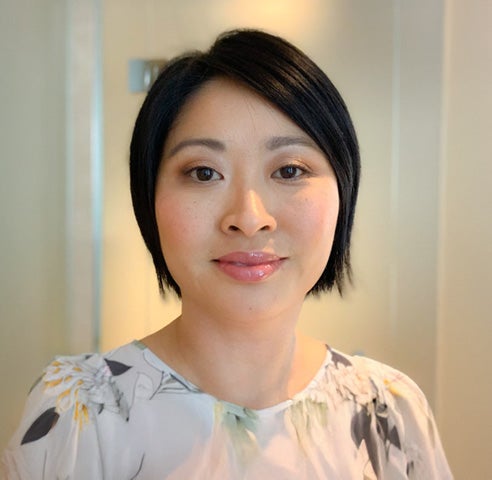
Lead Researcher, Associate Professor Ching Li Chai-Coetzer
Reducing Nocturnal Hypertension through new model of GP-based care for Obstructive Sleep Apnea
Waking up to change: Associate Professor Chai-Coetzer’s mission to bring sleep into the heart of healthcare
For Associate Professor Ching Chai-Coetzer, it all started with sleep. Or rather, the lack of attention it was getting in everyday medicine. In 2007, while beginning specialist training in Sleep Medicine, A Prof Chai-Coetzer also embarked on a PhD project that would quietly challenge the status quo: What if obstructive sleep apnoea (OSA) could be diagnosed and managed in general practice, not just in specialist clinics?
Working alongside more than 40 GPs and nurses across metro and rural Australia, the research proved what many suspected but hadn’t yet dared to test, primary care could handle it. “That was the turning point,” she recalls. “We needed to put sleep back into the hands of the community.”
Fast forward to 2025, and that idea is still evolving, this time with the support of an Avant Foundation Research Grant.
The latest project tackles the link between OSA and nocturnal hypertension, a silent condition that keeps blood pressure elevated during sleep, often without obvious symptoms. The proposed solution is both practical and forward-thinking. It involves early detection and proactive care delivered directly through general practice, supported by strong cross-sector collaboration and new technology: think under-mattress sensors, smart blood pressure monitors and Wi-Fi-connected scales. This isn’t your average clinic toolkit, it’s a home-based system designed to empower patients to track their own sleep and cardiovascular health. But the real innovation is in the structure, not just the sensors. “We’re creating a scalable model that lets primary care teams lead,” says A Prof Chai-Coetzer. “That means training GPs and nurses, supporting them with specialist partnerships and giving them access to the tools they need to treat two of the most common chronic conditions - OSA and high blood pressure.”
Although this study is still in its pilot phase, its vision is far-reaching, aiming for national impact and potentially global relevance. The ultimate goal is to launch a large-scale, multi-site clinical trial to investigate how integrating sleep and hypertension management within primary care could help reduce the burden of cardiovascular disease. Early-career researchers are part of the vision too. The project provides hands-on roles for future leaders in the field, helping to build capacity where it’s desperately needed.
A Prof Chai-Coetzer knows firsthand how good research can change systems. Her earlier work led to the introduction of the OSA50 screening tool into Medicare guidelines, an achievement that turned clinical insight into real-world impact. Still, there’s more to be done. “Technology and evidence are only half the battle,” they say. “The other half is advocacy - getting policymakers, professional bodies and communities to understand why sleep matters.”
A Prof Chai-Coetzer credits much of the research’s trajectory to mentorship, particularly from sleep medicine pioneer, Emeritus Professor Doug McEvoy. “His guidance has shaped my path,” she reflects. “But so has the challenge of juggling clinical work, research and family life. It’s a balancing act, but it gives the work more meaning.” Despite the pressures, they remain focused on one goal: to transform how sleep health is understood and treated across the healthcare system.
As the health system grapples with chronic disease on a massive scale, A Prof Chai-Coetzer sees sleep becoming central to prevention and care. Over the next decade, she hopes to see sleep assessments integrated into chronic disease plans, new Medicare item numbers supporting GP-led care and sleep education embedded into medical training.
But to get there, A Prof Chai-Coetzer says researchers need more than just grants. “We need flexible workplaces, strong mentorship and space for collaboration, especially for those early in their careers. That’s how we build momentum.”
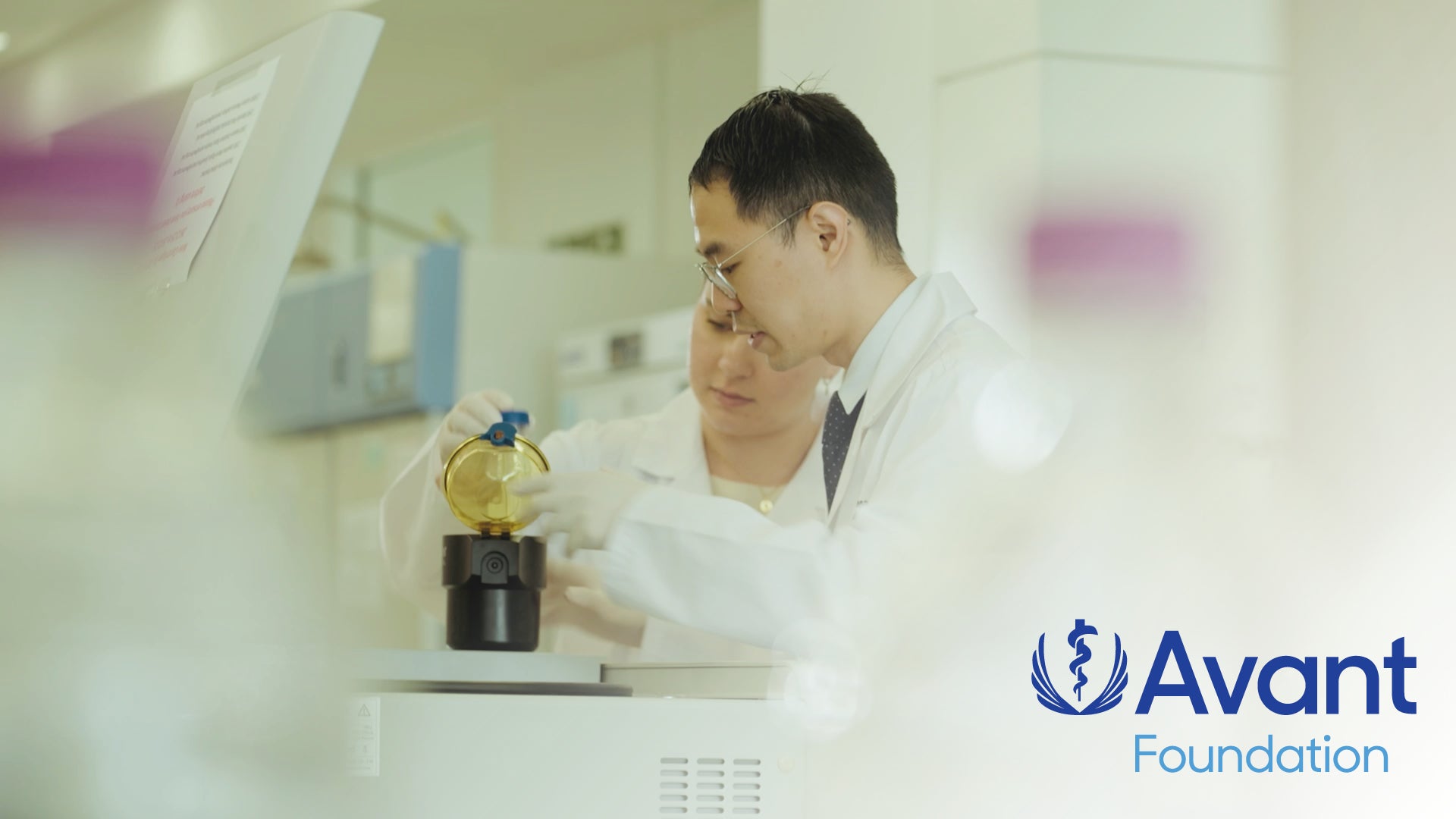
Avant Foundation 2025 Video
Transformation Grant
$1 million awarded annually to organisations to create transformational change in healthcare, with a special focus on health systems.
Research Grants
Grants to organisations up to $100,000 to advance medicine by funding excellence in quality, safety and sustainability through research, with a special focus on health systems.
Bursaries
Investing in the future of healthcare by supporting people undertaking education in medicine, with a focus on equity.



